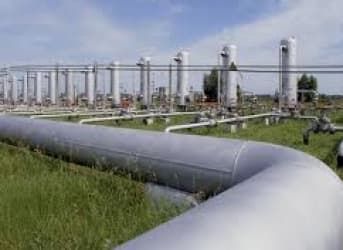New York Gov. Andrew Cuomo said in an executive order calling for more oversight on rail transit of crude oil that it's "historically safer" than road transport. With more oil coming from the Bakken play in North Dakota, he said he was concerned about safety along New York's rail network. Between the lines, his order may suggest domestic pipelines could be the solution to the U.S. midstream bottleneck.
Cuomo, a Democrat, called on state agencies last week to monitor oil shipments by rail. A December derailment in North Dakota, and last year's deadly incident in Lac-Megantic, Quebec, raised concerns about the safety of the crude oil running along New York's network of freight lines.
Rail cars carrying crude oil cover about one-third of the 3,500-mile New York state network, running along the Mohawk River and other waterways before facilitating deliveries to mid-Atlantic refineries.
Related article: Nigeria Mulls $20 Billion Trans-Saharan Natural Gas Project
"The state is also calling on the federal government to expedite enhanced standards for transporting crude oil by rail and water to reduce the potential for spills and accident," the governor's order said.
Industry officials say the increase in U.S. crude oil production is more than the existing domestic network of oil pipelines can handle. That, in turn, has prompted some energy companies to use rail, which at times gives shippers more options in terms of destination when compared with pipelines.
U.S. lawmakers stumping for a repeal of the 1970s ban on domestic crude oil exports credit North Dakota with helping push 2013 production levels above the 8 million bpd mark for the first time in 25 years. But it's tough get oil out of North Dakota because of the lack of sufficient pipeline infrastructure.
On Tuesday, the U.S. Department of Transportation slapped Hess Corp., Marathon Oil Corp. and Whiting Petroleum Corp. each with $93,000 fines for not following the rules on Bakken classification for rail.
Related article: A New Oil Pipeline could be Devastating for the Railway Industry
In early January, the Department of Transportation's Pipeline and Hazardous Materials Safety Administration said Bakken crude has a lower flash point than other grades and is therefore more prone to explosion. In issuing the penalties, the department said shipping crude oil without proper classification could led to delivery using containers not designed to store it properly. Last year's derailments involved older DOT-111 railcars that industry officials have said aren't suited for Bakken crude.
New York's governor said rail is typically one of the safer ways to transport crude oil when compared to other overland options like trucks. For most inland U.S. shipments, that leaves pipelines as the favorable option to deliver North Dakota's crude.
ADVERTISEMENT
BNSF Railway Co. unveiled a capital commitment plan Tuesday of roughly $5 billion for 2014, which it said would help with line capacity for increased U.S. crude oil production. But with uncertainty hanging over the future of rail safety, the industry may be forced to put more effort into expanding domestic pipeline infrastructure.
By. Daniel J. Graeber of Oilprice.com


















